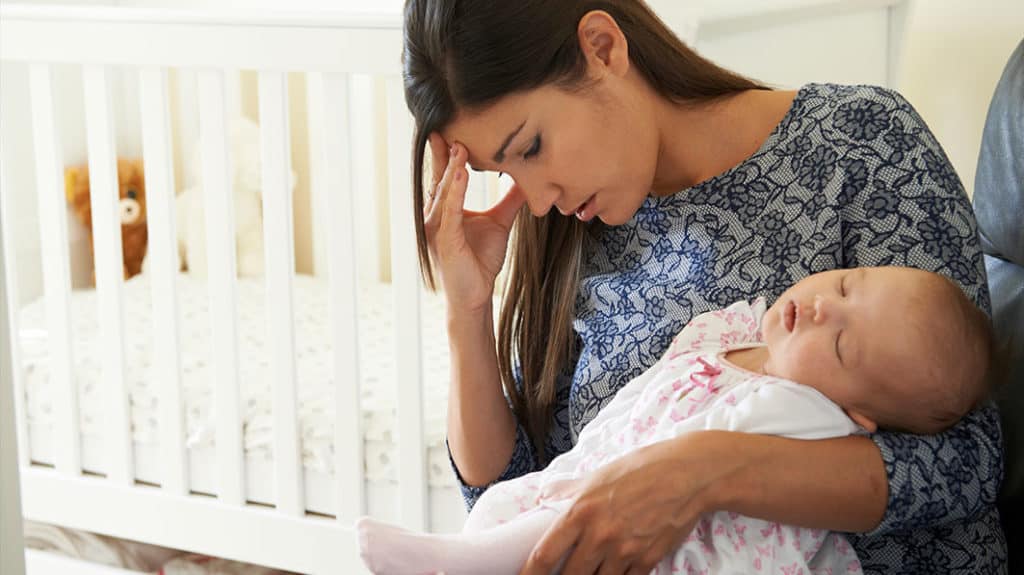
The Weapon That Depresses Depression
Depression doesn’t make you a failure. Persevering through it makes you a strong Christian and a winner in God’s eyes.

Postpartum depression isn’t something to suffer through in silence. Get help!
Estimated reading time: 3 minutes
Postpartum depression is a difficult topic to discuss. Women have feelings of shame as they experience changes in their mood and body after giving birth. There doesn’t need to be guilt surrounding something you can’t control. By understanding what postpartum depression is and taking the struggle to the Lord, you can begin to walk the road of recovery.
The high concentration of estrogen that prevails during pregnancy generally produces feelings of well-being. After delivery, however, estrogen levels drop and thyroid hormone levels may fluctuate for several weeks. The fluctuating levels can cause symptoms of postpartum depression.
Labor and delivery themselves are stressful and deplete a woman’s energy. Then there is the care of a new infant, whose feeding and diaper-changing schedules often do not conform to the usual routines of days and nights. Some mothers also experience difficulty breastfeeding at first.
For most mothers, improvement can be felt as early as the second week of a newborn’s life. New routines are established, husbands and other helpers adjust to their responsibilities, and physical strength begins to return. However, this is not the case for every new mom.
In about 10 percent of mothers, symptoms of postpartum depression ensue. Women experience an array of emotions and problems that include anger, doubt, guilt, helplessness, difficulty concentrating, disruption of sleep and appetite, uncontrollable crying, mood swings, confusion and unrelenting fatigue.
In severe cases, mothers lose interest in the baby and suffer through thoughts of wanting to hurt their child, which brings on a renewed cycle of guilt. Symptoms often appear within a couple of days after delivery or may begin six to 12 months later. Fortunately, help is available.
Postpartum depression is believed to arise from a combination of physical, emotional and environmental factors. Women with severe PMS or a history of depression are at greater risk of developing postpartum depression. Emotional and environmental factors can include marital difficulties, doubt about parenting skills, financial worries, fears about the child’s future and lack of social support.
Frequently medications are needed and counseling is beneficial. Additional support from spouse, family and friends is crucial. The new mother needs not only reassurance and companionship but help with infant care so she can rest. Some mothers with exceptionally severe postpartum depression have benefited from a few days to weeks in the hospital.
There is hope in the midst of struggling with postpartum depression. The Lord is with you and there are resources for mothers in need. Moms, you do not have to walk through this alone. Call upon the Lord, your spouse, your family, and your friends. Give yourself grace and be gentle with yourself as you heal.
Reginald Finger, MD, MPH wrote this article while on staff with Focus on the Family. He currently is on the faculty of Indiana Wesleyan University.
Focus on the Family has resources and counseling to help you and your family. You can contact us during normal business hours at: (800) A-FAMILY (232-6459) or [email protected] or you can find resources, referrals and articles to help you right now.